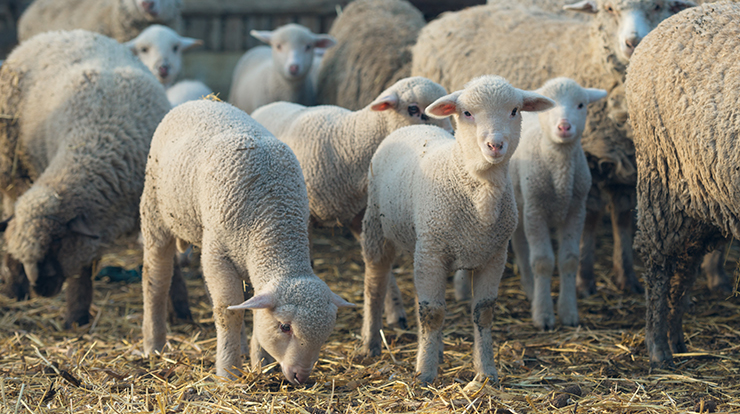
Producers can access the genetic keys to open the gate to more profitable, sustainable beef and sheep businesses at a free MLA forum in Adelaide next month.
The Livestock Genetics Forum will be held on 5–6 April 2022. Following a two-year break due to the pandemic, the event for beef and sheep producers and other industry participants is finally back on.
Here, MLA Program Manager – Genetics, Hamish Chandler, explains what producers can learn about genetics in livestock and how it can shape their business into the future.
Why is the forum’s theme, Impacting profitability and sustainability through genetics, so important?
Profitability and sustainability have never been more important when you look at the current market and seasonal conditions facing producers, right across the country.
Climate variability across Australia is placing greater demands on breeding resilient livestock, while market conditions dictate the need to improve general profitability across the beef cattle and sheepmeat sectors. Genetics are the tools the industry can use now and into the future to build resilient livestock which are productive even in the face of Australia’s increasingly variable climate.
There’s also a clear link between improving the rate of genetic gain and the commercial profitability of the Australian livestock industry. Therefore the National Livestock Genetics Consortium set the goal of doubling the rate of genetic gain by 2022.
The forum is part of MLA’s broader approach to increasing the uptake of the use of genetic tools and technologies by livestock producers to boost productivity and profitability in their herd or flock.
What new projects and initiatives will I get a taste of?
There’s plenty on offer at the forum, ranging from how genetics can play a positive role in climate change through to how producers and processors can harness technology to improve feedback.
Speakers from along the supply chain and from research organisations MLA partners will explore a range of topics including how producers can use breeding values to prepare to capture benefits from objective carcase measurement and associated pricing signals.
You’ll also get an insight into new research into methane traits and immune competence, or the ability to cope with disease, as well as how genetics can help with environmental and suitability goals on-farm.
Why is attending the forum a good investment of my time?
There’s been a lot of research happening ‘behind the scenes’ in livestock genetics and we’re excited to be at the stage where many of these projects are coming to fruition and can be applied to the industry.
For example, producers can access breeding values underpinned by these research projects through the major Sheep and beef genetic evaluations and use these as part of their breeding operations.
The forum provides a front row seat to new traits which are being investigated – you’ll hear from other producers who are changing their breeding programs to respond to challenges, as well as industry experts as they dissect the big issues now and of the future.
Without producers using this information to make decisions, the industry won’t achieve the potential value on offer using genetics to impact the profitability and sustainability of livestock businesses.
Why should I be thinking of future traits in my breeding objectives?
Livestock breeding is a medium to long term proposition, so breeding programs should be developed well in advance. We know that in another 10 years down the track supply chains will be putting more demands on us, it is important for us to consider what those future traits might be and start bringing them into our breeding programs now.
For example, look at eating quality traits in the sheepmeat industry. MLA has been working with seedstock producers for the past 10 years about how they can incorporate eating quality traits into their breeding objectives.
Over this time, sheepmeat producers have improved genetic trends for eating quality traits like intramuscular fat. Now we are seeing new objective measurement technologies allowing processors to start rewarding those producers who have made these improvements, which is a great outcome.
How can I use genetics now to optimise profitability and sustainability in my beef/sheep production systems?
When it comes to genetics, the consistent challenge is how to accurately identify which animals are carrying the desired traits. The ability to do this quickly and efficiently is vital to maintaining a profitable and sustainable industry.
Here’s three ways you can focus on genetics in your business:
- Know what traits are important to your business and utilise breeding values to purchase bulls and rams that suit.
- Come along to the Livestock Genetics Forum in Adelaide to hear about the MLA’s genetics program and gain an insight into how rolling out genetic programs will optimise profitability and sustainability of production systems.
- Check out MLA’s genetics hub – genetics.mla.com.au – for resources such as producer case studies and how-to videos to learn more about breeding values and how they can benefit your bottom line.







